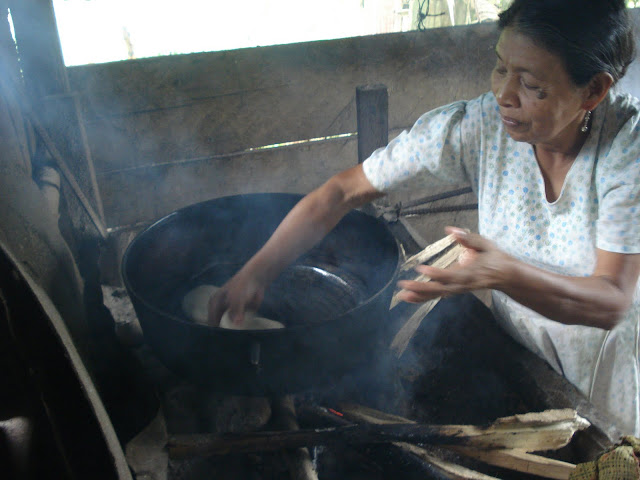I have to admit off the top that the title of this post is not original, or especially meaningful, but look at it for a bit and see if you can discover something neat about it. I'll tell you at the end of the post.
Well I'm here. After a couple of days of sightseeing in Washington D.C., I met with the other 35 new trainees of Group 64 Panama, and we flew down here August 12th. We're actually two sub groups, Community Economic Development and my group, Environmental Health. We had a few days of initial orientation, inoculation and adaptation in the capital, staying at a former U.S. military compound right beside the Miraflores locks at the Pacific entrance of the canal. I was awakened that first humid morning in Panama to the most outrageous squawking from the birds roosting in a palm tree outside our window, and was delighted when I got a good look at them flying off in the dawn's early light and discovered they were a flock of brilliant green parrots. A great welcome to Panama.
We were all soon moved out to the small town of Santa Clara, an hour and a half west of the capital to our homes for the first few months during our training. A fairly stark contrast to the gleaming skyline of Panama City. I've been living with a nice local family and thoroughly enjoying the training regimen--basically four hours of language classes every day, followed by four hours of technical training. The latter has been largely in so-called "soft skills," learning the Peace Corps approach to development, which has everything to do with building capacity in a local community to conceive, plan, fund and follow through with projects with a volunteer acting more in the role of facilitator. It sounds pretty dull on paper, but has actually been excellent so far. We've also gotten to do some hands-on work with campo concrete projects and whacking away at the monte with our new machetes. As for the language training, I was placed in the advanced group after initial interviews, so we had Spanish classes for a couple of weeks and then started receiving instruction in the language of the Ngabe, the largest indigenous tribe in the country. This has proved to be a huge and humbling challenge. I'm coming to believe there's something to that age/brain plasticity theory because I am definitely not able to catch on to this entirely new language with anywhere near the facility of my young classmates. Ngabere is a pre-columbian language that bears no relation to English or Spanish in terms of word roots, phonetics, syntax or anything at all that I can recognize. It is kind of cool though, and I think with patience and persistence, I´ll eventually get it. I'm pretty inspired to learn it too, as I just found out this week that I´m being sent to a Ngabe village for the next two years. Most of the people in the area do speak Spanish as a second language though, so I'm not sweating that aspect.
So my assignment is to a village of around 800 called Bahia Azul on the Kusapin peninsula. It's a site accessible only by sea from the town of Chiriqui Grande, which you might find on a map of Panama. It's in the Bocas del Toro area of northwest Panama. I was out there a couple of weeks ago visiting a volunteer who lives an hour's boat ride up the Cricamola river, and it is indeed a beautiful area and a facinating culture from what I've seen. I hear nothing but rave reviews of the peninsula itself, so I'm just completely stoked. There are two other volunteers elsewhere on the peninsula, maybe one to two hours away by canoe. I've heard you can get a nice locally made dugout model for around $40. And, by the way, I hear there's good surfing potential on the Carribean side of the Peninsula.
I'm off tomorrow for the Bocas area for a week of more specialized cultural training, followed by another week in western Panama for tech week training, building composting latrines and the like. Should be great.
The pictures above are the Panama City skyline and the mouth of the Cricamola river--definitely a tale of two countries. Also a shot of a Ngobe friend out west, and yours truly at the site announcement event from the other day pointing to my picture pasted onto the map at the site of my future home. Can you tell I'm feeling good?
And by the way, since you've read to the end, the title of this post is a palindrome.








